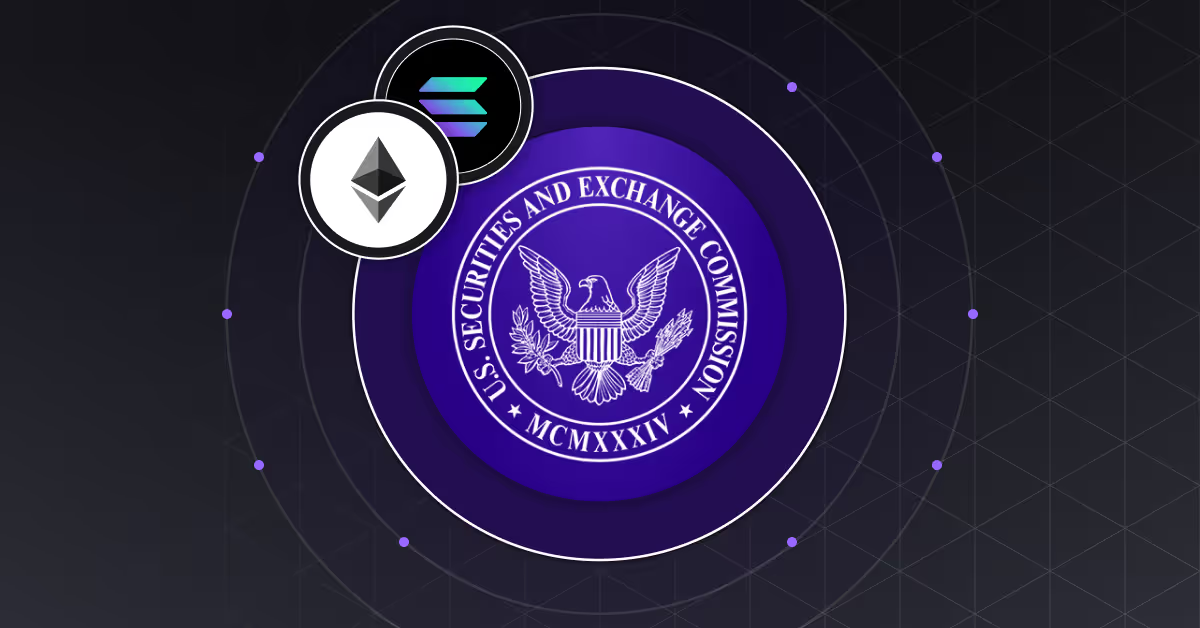Get Started with
Blockdaemon Today!
Contact us to learn how we can help you power your blockchain business.



The SEC has issued long-awaited guidance clarifying that not all staking is a securities offering. Learn what this means for protocols, validators, and staking providers.

On May 29, 2025, the SEC’s Division of Corporation Finance quietly released something the industry has been waiting on for years: actual guidance on how certain protocol-staking activities fit - or don’t fit - into U.S. securities laws. While it doesn’t change the law or offer blanket safe harbor, it’s the clearest statement we’ve seen from the SEC acknowledging that not all staking is a securities offering—and that’s a big deal.
What the SEC Said
At a high level, the SEC’s guidance draws a firm line between staking directly with a blockchain protocol and staking-as-a-service models that introduce third-party custody, pooling, or promotional mechanics.
According to the statement, when a user stakes their tokens directly to a proof-of-stake (PoS) network and retains full control over their assets, and when rewards are determined solely by the protocol’s rules, not by any third-party effort or discretion, those activities are unlikely to trigger federal securities laws.
That may sound obvious to those in the space, but coming from the SEC, it’s a significant step forward.
Why It Matters
This is the first time the SEC has publicly and directly acknowledged that protocol-level staking, when done properly, doesn’t automatically amount to an investment contract. It marks a shift from the enforcement-first posture seen in recent years and gives staking providers, validators, and infrastructure projects something to point to when designing and assessing their offerings.
It also helps reinforce that not all “staking” is the same. The term has been broadly applied across everything from true protocol delegation to yield-bearing investment products with very little in common. This guidance starts to untangle that.
Key Takeaways
What's Next
This isn’t a free pass, and it’s not official rulemaking. But it is an incredibly helpful signal. It gives staking providers and infrastructure players clearer guardrails for building compliant offerings and reaffirms that staking, when done right, is a core blockchain function, not an investment scheme.
Expect to see further clarification and possibly a ripple effect on how staking disclosures and platform designs are approached in the U.S. And while we still need formal rulemaking or legislation, this guidance gives teams across the space more confidence to move forward.
For those of us who’ve been navigating years of ambiguity, that’s a welcome change.

Contact us to learn how we can help you power your blockchain business.


